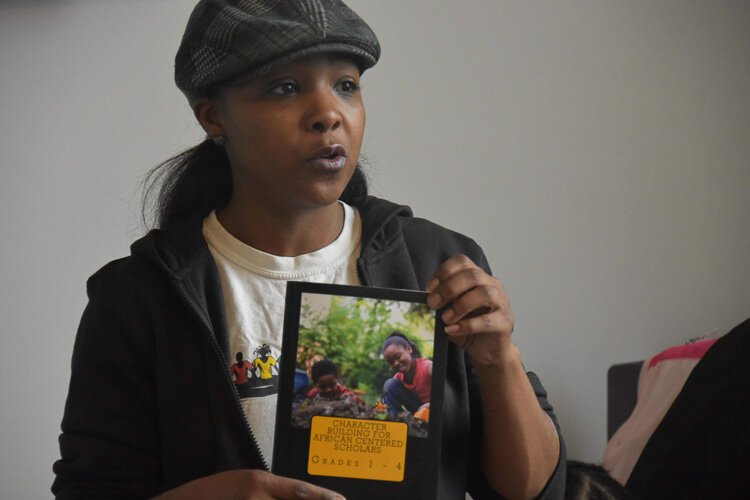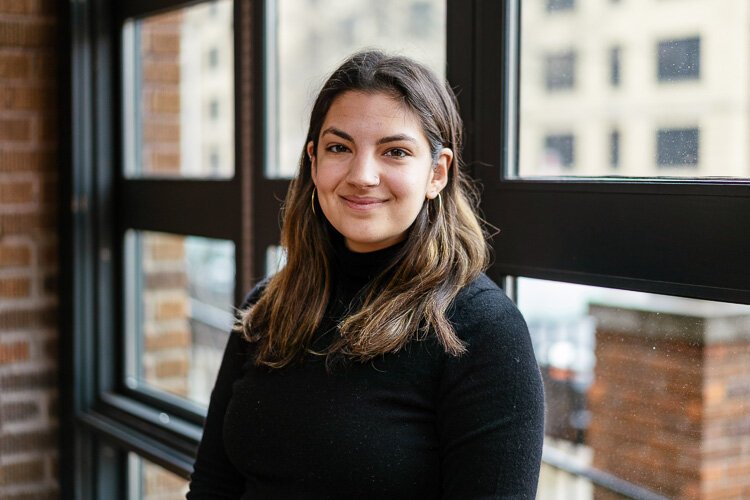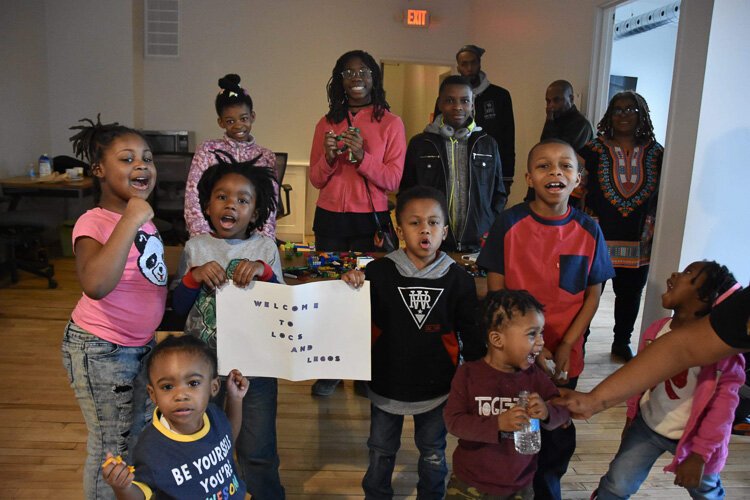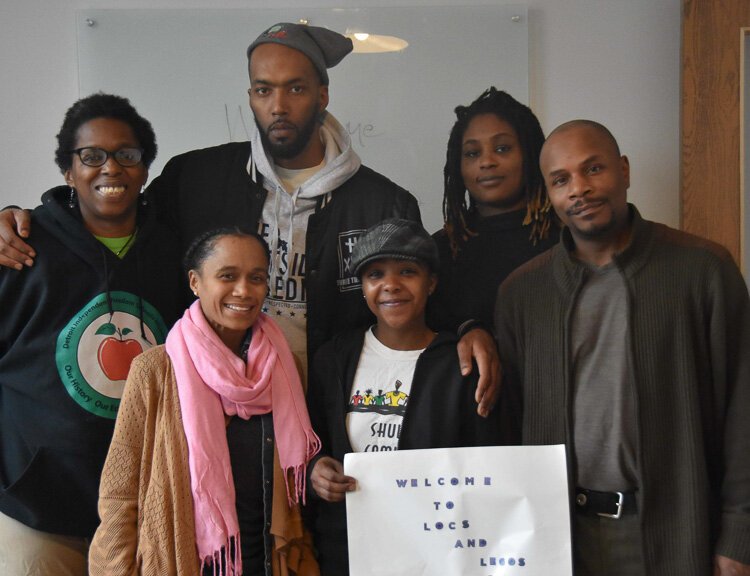Harambee Home School Cooperative supports early education in Detroit
How one Detroiter is creating her own child care options using a cooperative model.
Shimekia Nichols wanted to be prepared for her son’s early childhood education, so she started researching well before her son was old enough, even for preschool. She says that early start gave her time to recognize the realities of her options.
“I was getting nervous after looking for more than a year for educational avenues,” she recalls. “There were childcare and daycare facilities, but I wasn’t comfortable with them or convinced they had the level of academic expectations I was looking for.” Nichols recognized the rate at which her child’s brain was growing, even just engaging with her at home. “By the time he was 2, I was frustrated and disappointed in the community for not having quality education options.”
As a graduate of the now-closed Aisha Shule Academy and W. E. B. Du Bois Preparatory Academy, Nichols says she wanted her son, Seven (who, incidentally, is now 7 years old) to grow up with the leadership principles and expectations she learned, but that she says are difficult to find in the Detroit educational landscape today.
Aware of research linking long-term academic success with quality early literacy, Nichols decided that homeschooling was the best choice for her family, and enjoyed continuing her role as her Seven’s first educator. She met other homeschooling families and decided to create a network of support for everyone involved.
It didn’t work out as she planned. “It became less of a collective, and more a low-cost or no-cost day care,” she says. “We have tons of those, and, and at the end of the day, the burden of paperwork and compliance can take away from the impact you can give a child.”

When her second son, Jai-Koa, was born and she was juggling life, work, and school, Nichols recognized more clearly the challenge of homeschooling for typical families who lack support or are living in poverty, yet want the best early education for their children. She wanted to take her already-formed educational collective and create a truly valuable resource for families.
From collective to cooperative
So, in the weeks after Jai-Koa’s birth, Nichols took time to think through all possible solutions to the barriers she and other Detroit homeschooling families were facing. She researched the foundations and structures of the cooperative business model, and connected with the Detroit Community Wealth Fund (DCWF), which she says has a reputation for supporting co-ops in the community. Two years on, Nichols has just completed the DCWF’s Co-op Academy, a 10-week intensive course for entrepreneurs looking to establish a cooperative business in Detroit.
What Nichols learned helped reestablish her homeschool collective as the Harambee Home School Cooperative (HHSC), an independent African-centered educational organization for Detroit families of children aged 2 to 5. Harambee, which means “pull together” in Swahili, is a membership-based co-op that supports Detroit families who wish to provide a high-quality culturally relevant education to their early learners.
“We provide educational tools and resources for homeschooling families, connect parents who need tutoring to tutors, provide access to culturally appropriate materials, and do pop-up workshops,” says Nichols. HHSC is in the stage of forming a steering committee that will provide ideas and recommendations to be carried out by the kazi (Swahili for “work”) team.
By focusing on early learning, Nichols says HHSC is poised to help parents boost eventual second- and third-grade literacy rates by intensifying early learning in the home. “We believe our focus on early learning will help more families and more people in those families,” she says.
HHSC aims to also support parents who work outside the home and cannot participate in traditional homeschooling. “Our goal is to advocate for extra schooling or extra support, and provide parents the tools they need without underlying judgment,” says Nichols.
As HHSC works to establish a structure, create goals and priorities, build strategic partnerships, and nail down a funding model, the co-op recognizes the challenge of meeting the needs of families spread across a considerable geographic distance. Nichols and 10 consistent HHSC co-op members are researching the value of a time-banking service, even establishing up a physical location that can serve as a meeting place that can “model what a healthy homeschooling environment for black children should look like,” Nichols says.
Co-op business model right fit for Detroit
While Detroit lags behind other markets in the number of operating co-ops, thriving co-ops are based on the needs of the community, says Margo Dalal, executive director with DCWF, a nonprofit organization that provides non-extractive loans,

education, and support to co-op businesses. “What are the needs in our community that businesses are not meeting? Often, it looks like education, child care, energy democracy – gas, electric, solar. And it looks like retail. It’s a business that is welcoming and affordable,” says Dalal. “It’s important to note that in Detroit we have a dozen or so co-op businesses that have emerged without any visible co-op business infrastructure in the city.”
The cooperative business model – in which everyone in the business is an owner – makes sense in Detroit’s post-capitalist economy, where environmental issues, mass job loss, and community disinvestment remain in the wake of the corporate exodus.
“We also talk about co-ops as a vehicle for reclaiming ownership for communities of color,” says Dalal, pointing out that co-ops that have existed since the 1970s exist mostly in affluent white cities. “Urban co-ops and issues for communities of color and marginalized communities is a newer connection.”
To conclude the Co-op Academy, DCWF held a celebration and showcase on Nov. 20 at the Commons Cafe & Laundry in Detroit, inviting all nine emerging co-ops from the academy plus others that already exist.
“Our goals were to celebrate the completion of the academy in a public setting and also invite other co-ops to showcase the work they have done,” says Dalal. “Principal six of co-ops is cooperation among co-ops, and in a way, that’s what we did. It was a chance to engage with each other and for people to realize there are a lot of co-ops in Detroit and Hamtramck.”
The series is supported by the New Economy Initiative, a project of the Community Foundation for Southeast Michigan that’s working to create an inclusive, innovative regional culture.







